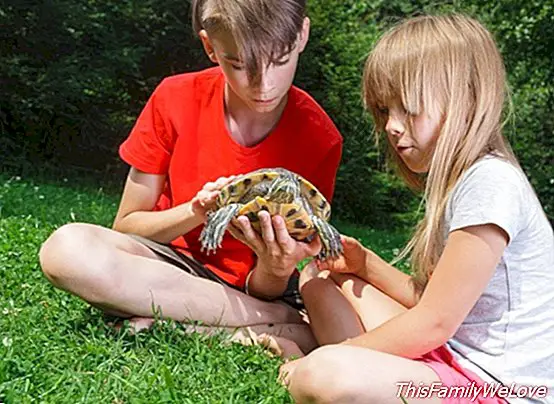Reptiles and amphibians, rare and dangerous pets

"Mom, dad, I want a pet"This phrase, which is so common in homes, is the beginning of a responsibility, not only because this new animal companion requires certain care to ensure its well-being, but also because in some cases the option chosen is more dangerous than in the beginning. In recent times, new 'friends' have expanded.
Reptiles like turtles or amphibians like frogs have become mascots for some homes. An exotic option that deserves more attention because they can cause some health problems in the smallest of the house. Therefore, from the National Center for Emerging and Zoonotic Infectious Diseases A series of tips are given to families who choose to do so.
Salmonella risk
From this organism it is explained that although many people believe that the only cause of infections due to Salmonella are contaminated food, there may also be risk when handling reptiles (such as turtles, lizards and snakes) and amphibians (such as frogs and salamanders). Even if they do not touch, the microbes present in their droppings can contaminate everything they touch, including all objects in their environment, such as aquariums and food dishes.
For this reason, it is recommended that children do not have turtles or other reptiles as pets. Proof of this is that in 2015 and 2016 202 people fell ill due to different outbreaks of Salmonella in the United States, linked to the presence of small turtles. The 40% of these cases were under 5 years old, and some individuals who became ill had not even touched the turtles, although they had them at home.
Tips for handling reptiles
In case the child enters Contact with any of these animals for their visit to the house of a friend who owns them or a school activity As visits to the zoo, these rules should be made clear:
- Wash hands after having been in contact with reptiles and amphibians, or with anything else that is within the area where these animals live.
- Children under 5 years of age and people with a weakened immune system should not handle or touch amphibians, reptiles, or get too close to the places where these animals live. Both are groups at higher risk of being hospitalized for Salmonella.
- Avoid cross contamination. Be very careful with reptiles' food and equipment and materials, they can also be contaminated. You also have to exercise hygiene if you have fed any of them.
- Never give kisses or hugs a reptile or an amphibian.
Damián Montero




